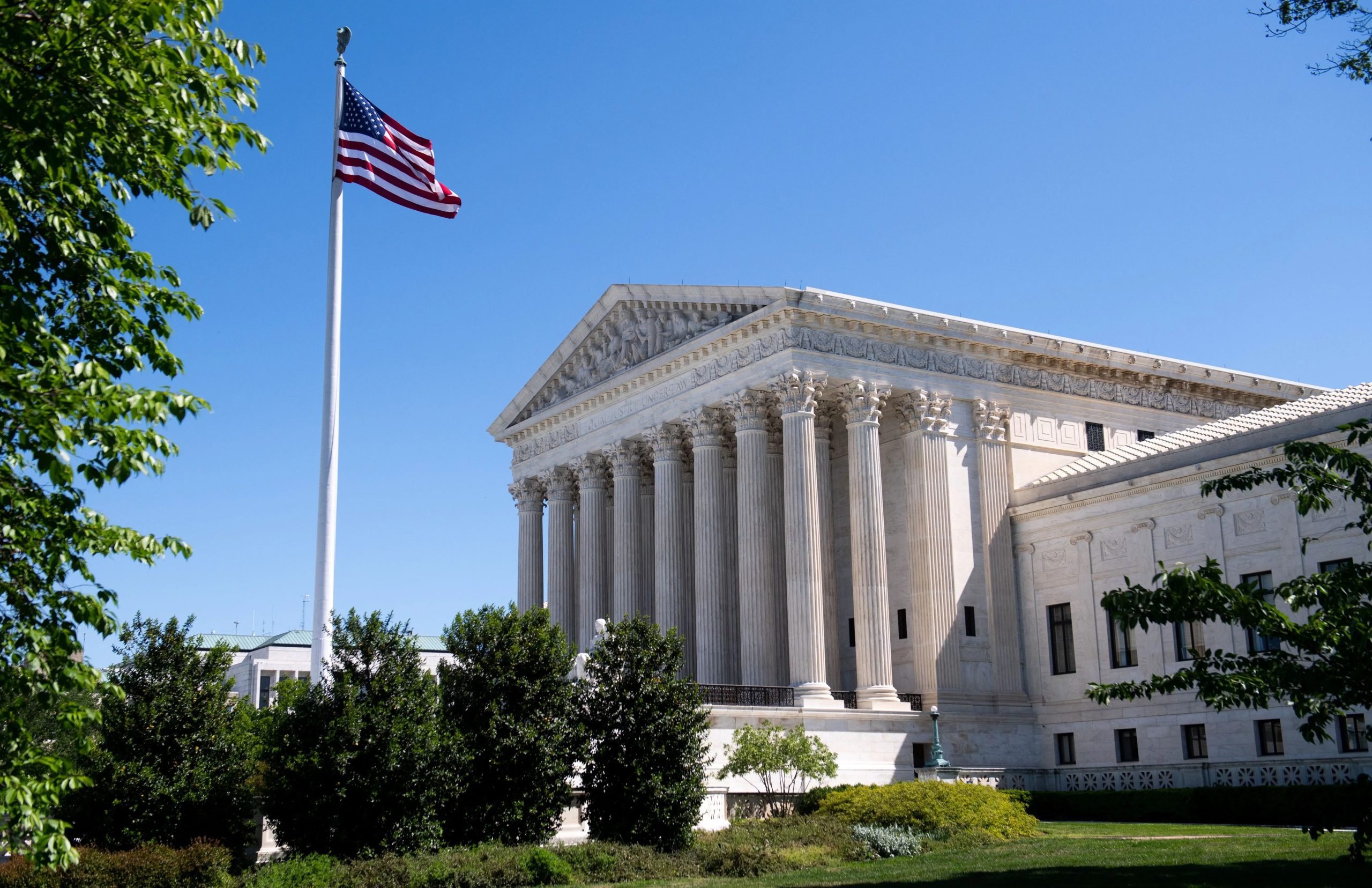Texas Republican Lt. Gov. Dan Patrick recently applauded the Supreme Court’s decision to permit the enforcement of Texas’ border protection law, S.B. 4, while it undergoes further legal proceedings. This ruling has significant implications for the state’s ability to address illegal immigration within its borders.
In January, the Justice Department initiated a lawsuit seeking to invalidate S.B. 4, arguing that the federal government holds exclusive authority over regulating the entry and removal of noncitizens.
The law allows Texas to detain individuals found to be residing illegally in the state, empowering law enforcement to arrest such individuals and either incarcerate them or initiate deportation proceedings.
Supreme Court Judges (Credits: 9News)
Speaking on Fox News, Patrick expressed his relief and satisfaction with the Supreme Court’s 6–3 ruling, characterizing it as “historic.” He noted that the decision provides Texas with legal backing to implement measures aimed at effectively addressing illegal immigration.
The lieutenant governor commended state Sen. Charles Perry, R-Lubbock, for his role in drafting and championing the law, highlighting its importance in upholding border security and the rule of law. The enforcement of S.B. 4 represents a significant step in Texas’ efforts to combat illegal immigration and safeguard its borders.
The law aims to deter illegal immigration and ensure compliance with immigration regulations by granting law enforcement the authority to arrest and detain individuals found to be residing unlawfully within the state. Patrick emphasized the importance of upholding state sovereignty and enforcing laws that protect the interests of Texans.
Supreme Court Judges (Credits: The Washington Post)
The Supreme Court’s decision to allow the enforcement of S.B. 4 while legal challenges proceed underscores the urgency of addressing the issue of illegal immigration at the state level.
With immigration policies and border security becoming increasingly contentious topics, the ruling clarifies the extent of state authority in managing immigration enforcement within its borders.
The lawsuit filed by the Justice Department reflects broader tensions between federal and state governments regarding immigration policy.
While the federal government maintains authority over immigration regulation, states like Texas argue for greater autonomy in addressing immigration-related issues, citing concerns about border security and public safety.
Patrick’s remarks following the Supreme Court’s ruling highlight the significance of S.B. 4 in Texas’ overall approach to immigration enforcement.
The law represents a proactive effort to strengthen border security and uphold the rule of law, aligning with the priorities of many Texans who seek effective measures to address illegal immigration.
As legal proceedings continue, the enforcement of S.B. 4 will remain a focal point in the broader debate over immigration policy and state sovereignty.
The Supreme Court’s decision clarifies the legality of Texas’ efforts to address illegal immigration and underscores the importance of state-level initiatives in shaping immigration enforcement strategies.
